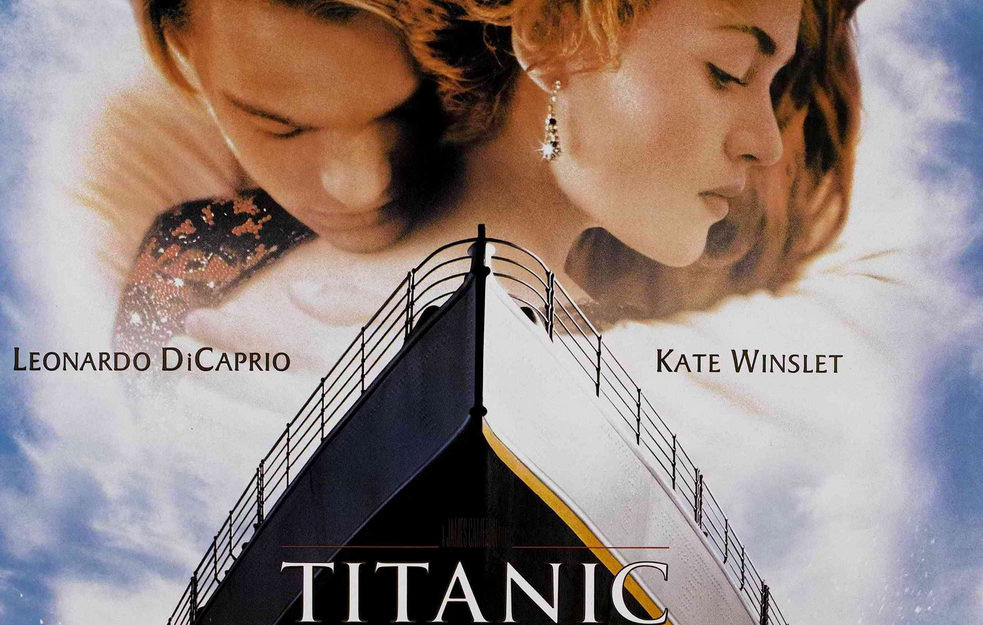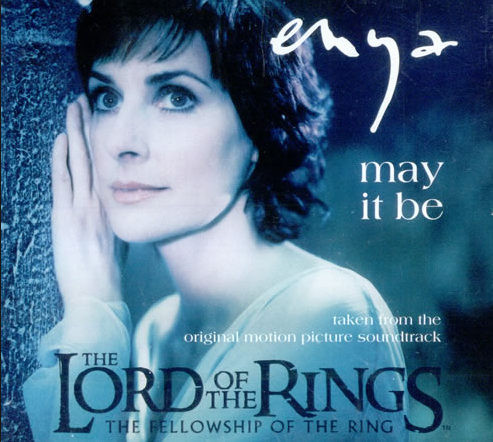It’s a fascinating piece of movie trivia: a renowned artist declined the opportunity to contribute to “Titanic” (1997), one of cinema’s most monumental successes. That artist was Enya, known for her ethereal New Age soundscapes. Her decision to pass on James Cameron’s blockbuster had a profound impact, particularly on what would become the iconic Titanic Theme Song. Let’s delve into why Enya said no and how it paved the way for the globally recognized anthem, “My Heart Will Go On.”
 new age music titanic poster
new age music titanic poster
When Enya declined, director James Cameron turned to James Horner, a composer he had a complex history with. Despite a prior strained relationship stemming from “Aliens,” Cameron was swayed by Horner’s powerful “Braveheart” soundtrack. According to Wikipedia, Horner was brought onto the “Titanic” project with Enya’s signature style in mind. Interestingly, Norwegian singer Sissel Kyrkjebø was chosen to perform the wordless vocals initially envisioned for the score, echoing Enya’s vocal style. However, the defining moment came with Céline Dion. Already a star in movie soundtracks throughout the 90s, Dion lent her powerful voice to “My Heart Will Go On,” a song penned by Horner with lyrics by Will Jennings. This collaboration birthed the definitive titanic theme song, and the rest, as they say, is history.
Enya herself shed light on her decision in a Wall Street Journal interview last year. She explained, “I was sent a script and they were actually working with some of my music as they were filming. James Cameron, he approached and sent the script, but what happened was when we were talking about the end song, it was to be a collaboration and that’s something that I’ve actually never done. I’ve felt, I get to write the song, I sing. I’ve always written the melodies so I find it kind of strange and I was working on an album, so I just said it wasn’t going to happen if it was a collaboration.”
This statement reinforces the understanding of Enya as an artist of unwavering independence. Even when faced with the immense scale of a James Cameron production poised for global success, Enya stood firm in her creative principles. Her artistic autonomy took precedence, a rare stance in an industry often driven by compromise and collaboration.
 new age music enya may it be
new age music enya may it be
It’s intriguing to consider the alternate reality where Enya had agreed to collaborate. Would there still be a “My Heart Will Go On”? Perhaps Enya would have crafted a different, equally Oscar-worthy and commercially successful titanic theme song? We can only speculate. However, Enya did eventually find her own blockbuster movie theme success with “May It Be” for “Lord of the Rings: The Fellowship of the Ring.” As she mentioned in the same WSJ interview, “[…] But, then with “Lord of the Rings”, the final song, there was no collaboration with Howard Shore on the final song, written by myself, Nicky and Roma, Collaboration is not [something] that I’ve really felt I’ve missed out on. I suppose because I’ve worked so closely with two other people, I feel like we get a sense of that all of the time in the studio.”
Ultimately, the story has a harmonious ending. “Titanic” soared to unprecedented heights, propelled in part by its unforgettable titanic theme song. And Enya remained true to her artistic vision, later achieving her own cinematic soundtrack triumphs. While the world might have missed out on an Enya-led titanic theme song, it gained an anthem in “My Heart Will Go On” that continues to resonate across generations.
